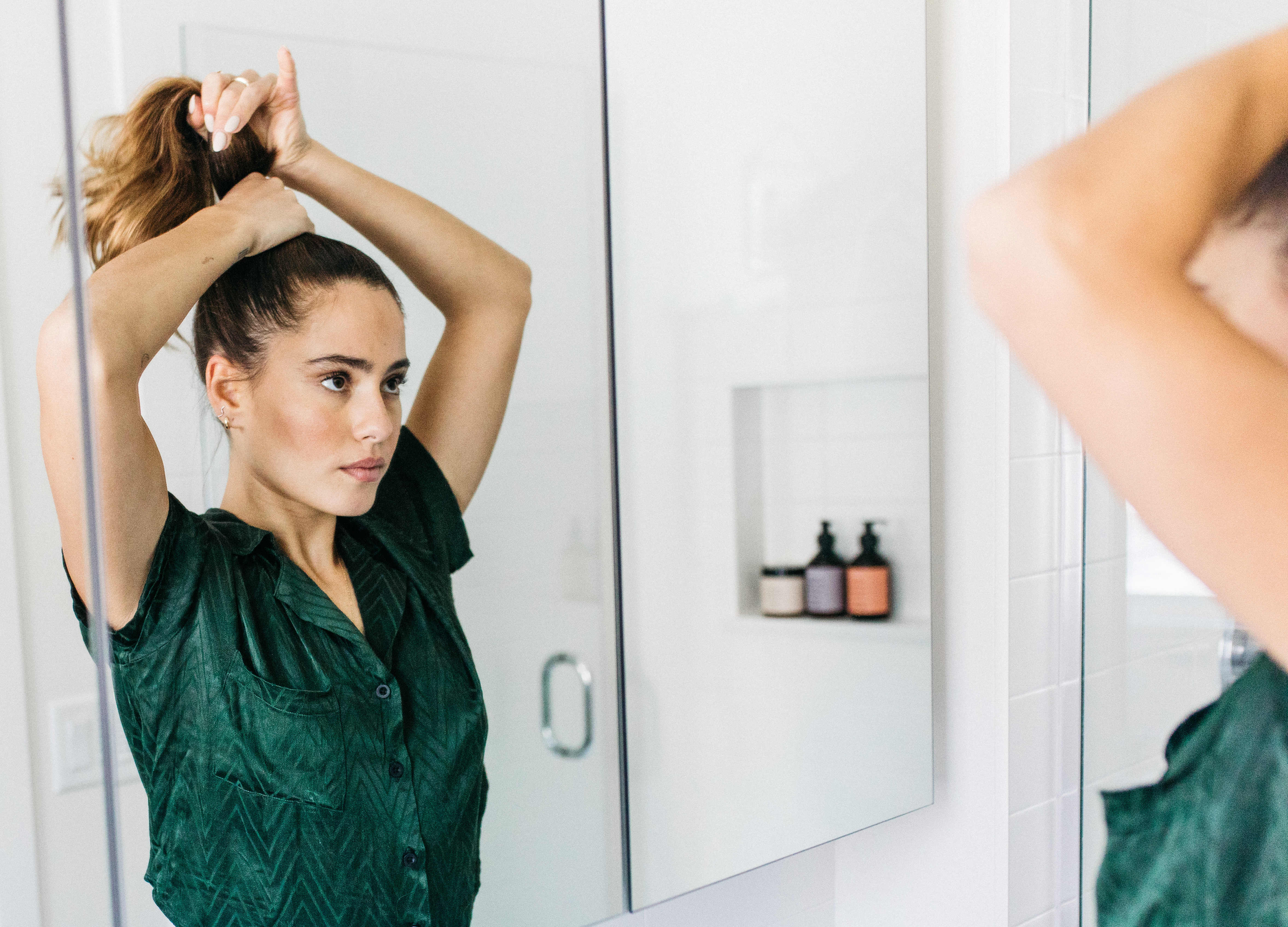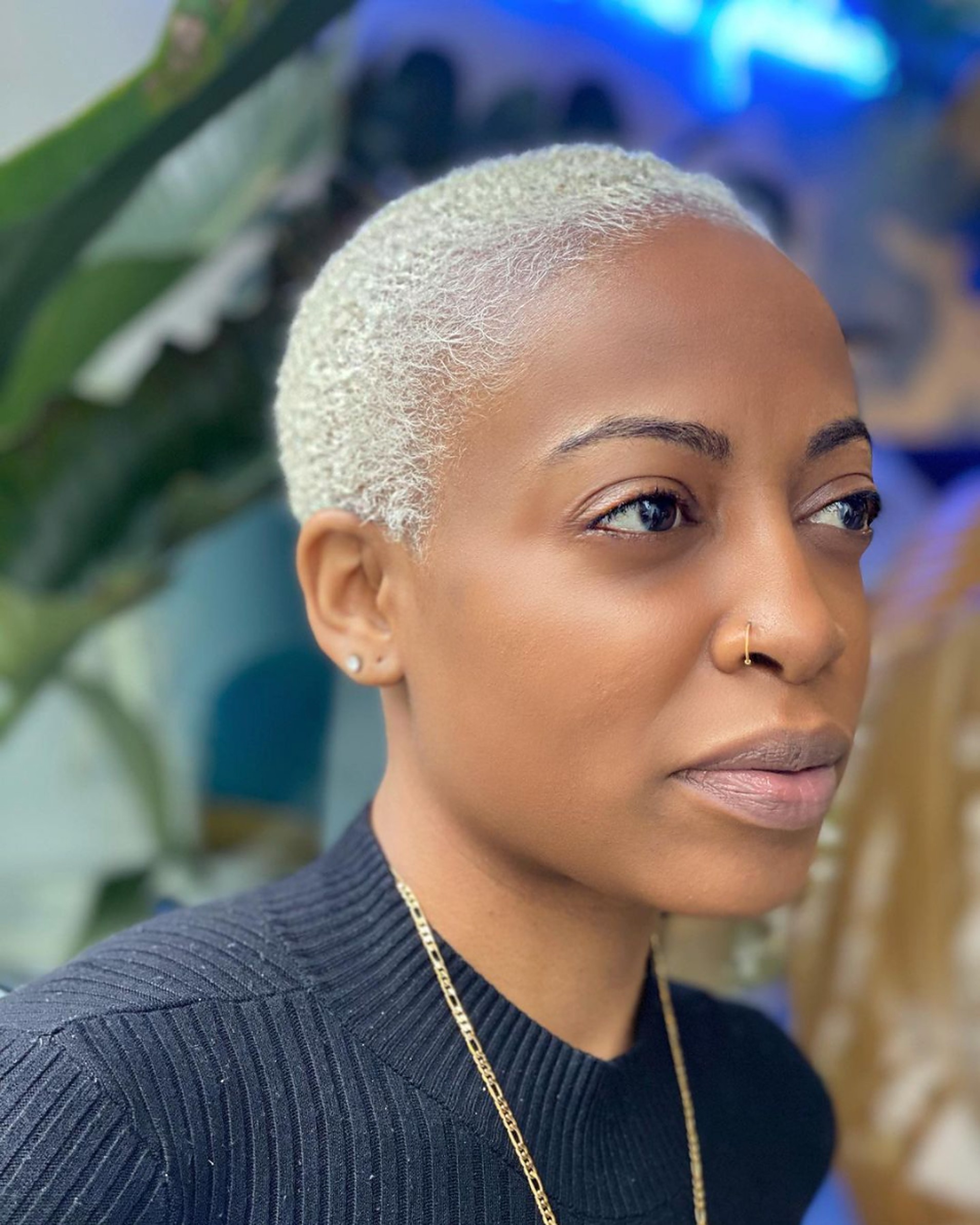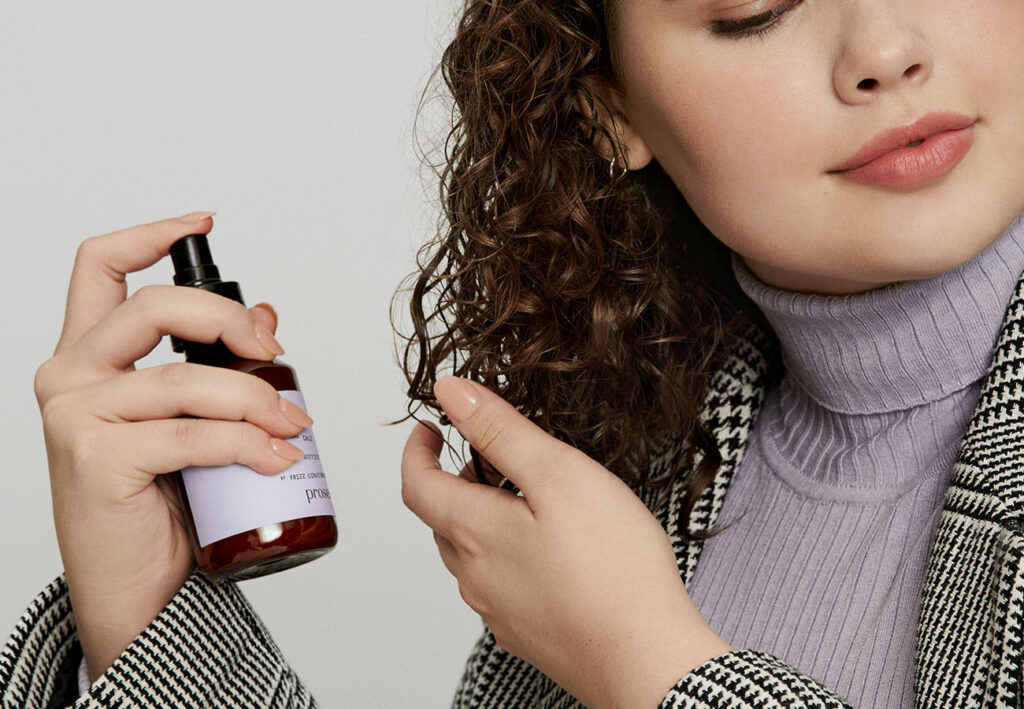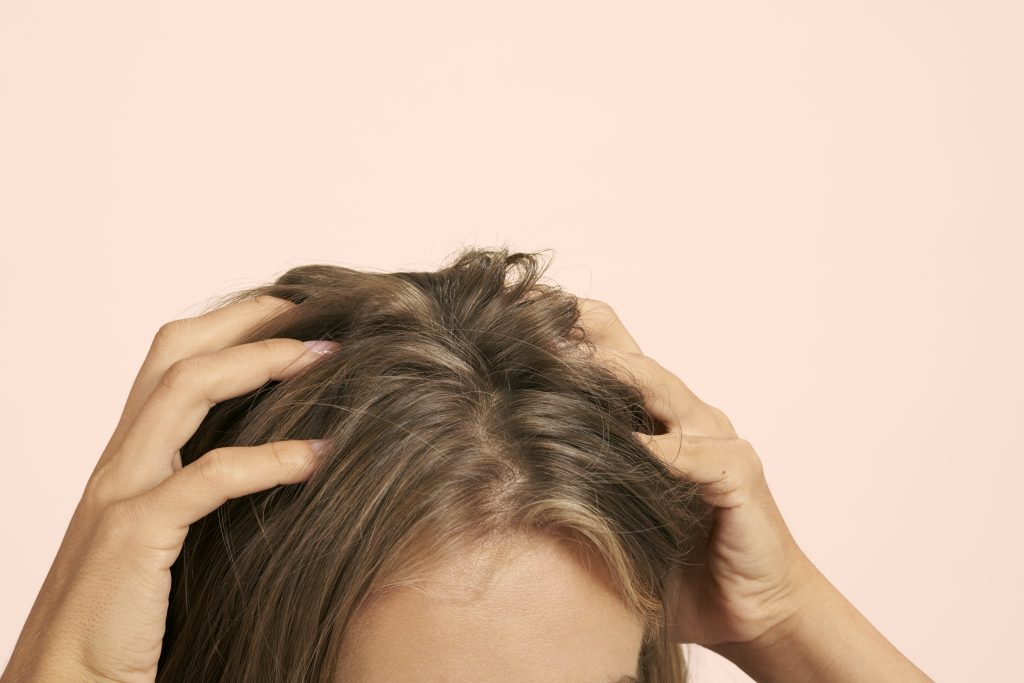1. Up your H20
“Hydration is your first line of defense against a flaky scalp,” says Dr. Howard Sobel, NY Cosmetic Dermatologic Surgeon and Director of Sobel Skin. “If you’re prone to flakes, drinking plenty of water is a must. By keeping your scalp hydrated, you help minimize the amount of flaky skin cells.”
2. Make a mask
“Crush two aspirins into a powder and mix it with your regular shampoo,” says Eliut Rivera, founder of Eliut Salon. “Using warm water, shampoo your hair; leave for a couple of minutes while massaging your scalp. Rinse out and shampoo again without aspirin. Rinse well and apply conditioner. Aspirin contains salicylic acid, which is capable of breaking down sebum and gently exfoliating the scalp.”
3. Brush it out
“Brush the hair and scalp prior to washing, ideally with a boar bristle brush, which is gentle on the scalp,” says Marina Perkovic, stylist at Eliut Salon. “A couple minutes of brushing will manually exfoliate the scalp, loosen the flakes and stimulate blood flow into the scalp, which is all around beneficial.”
4. Watch those fingers
“Make sure to never scratch your head,” Sobel cautions. “Scratching your scalp will only make the symptoms more severe and lead to increased flaking and irritation. Stress can also trigger increased flakes, so try to relax and know that there are many solutions to help fight them.”
5. Get salty
“Salt is an all-natural way to physically exfoliate the scalp,” Rivera says. “Apply about two tablespoons on dry hair and massage into the scalp for a couple of minutes. Shampoo well. Do this at least two to three times a week until flakes are gone.”
6. Head to the salon
“In-salon scalp treatments are the most effective,” Rivera says. “In my salon, we have steam and oil-based products which will provide intense hydration deep into the scalp.”
7. See a derm
“There are in-office treatments to stabilize the scalp and reduce flakes and shedding such as PRP (platelet rich plasma), which is injected into the scalp to improve the health and stability of the hair,” Sobel says. “PRP contains essential proteins designed to stimulate hair growth and there is no downtime.”





